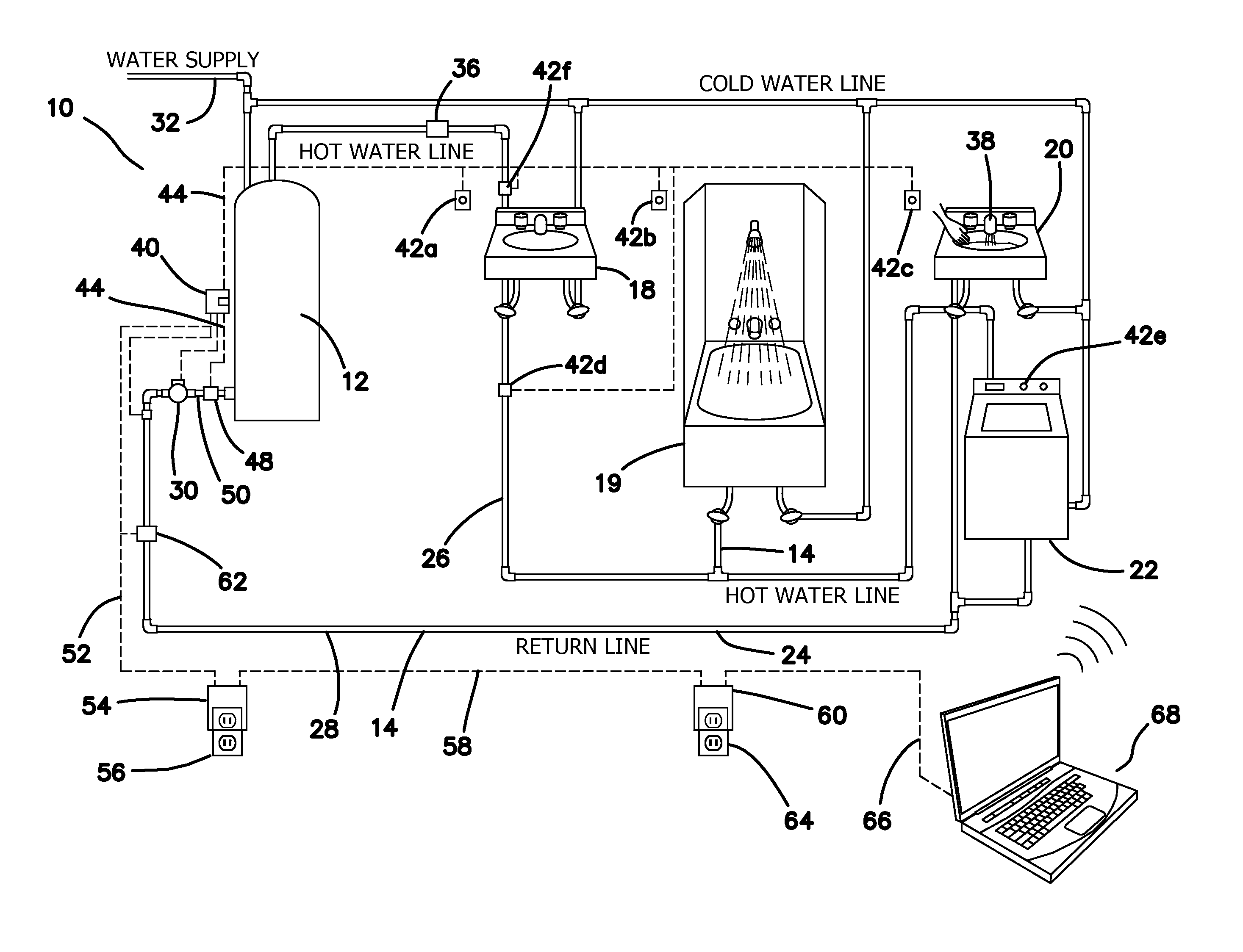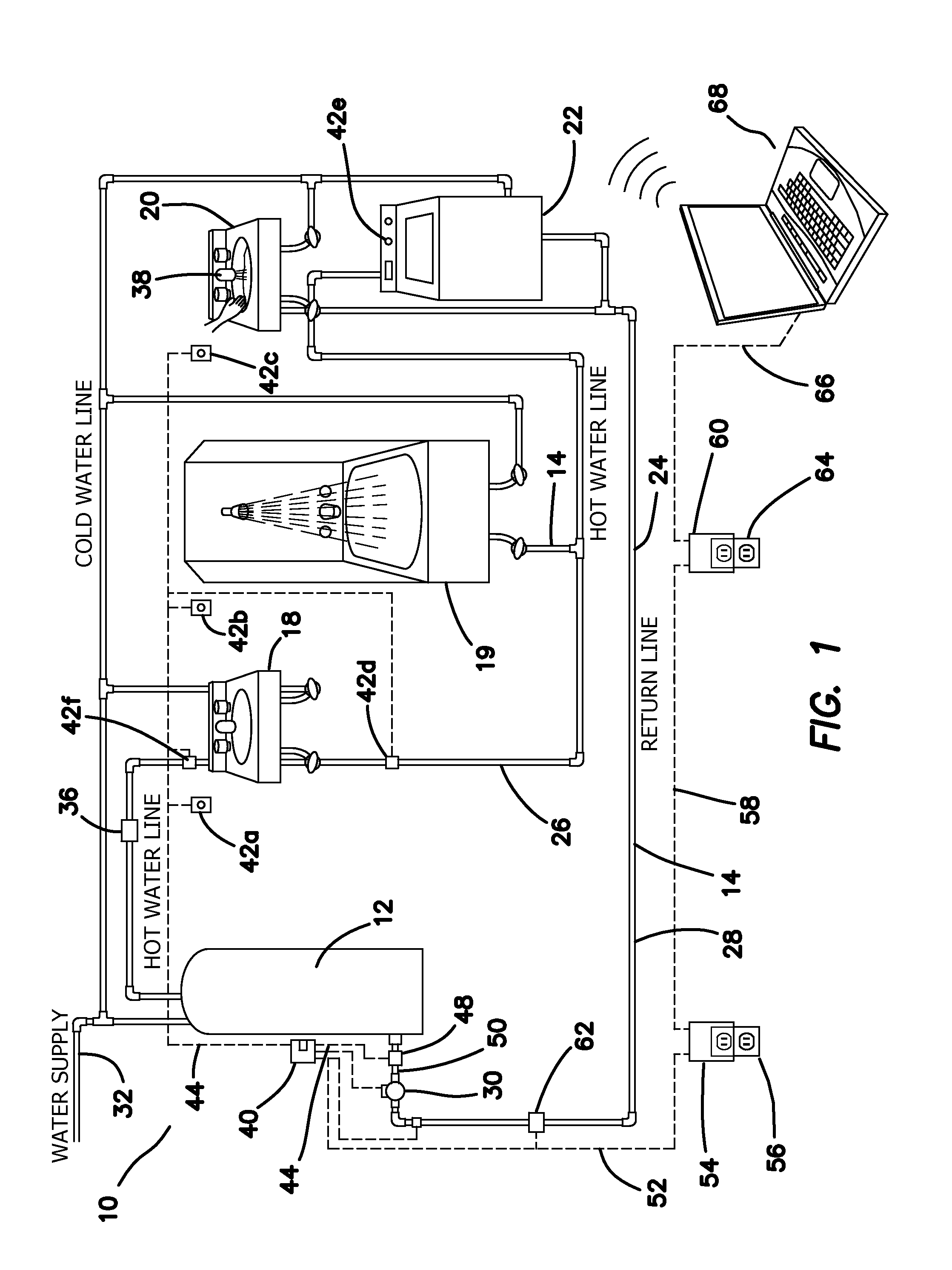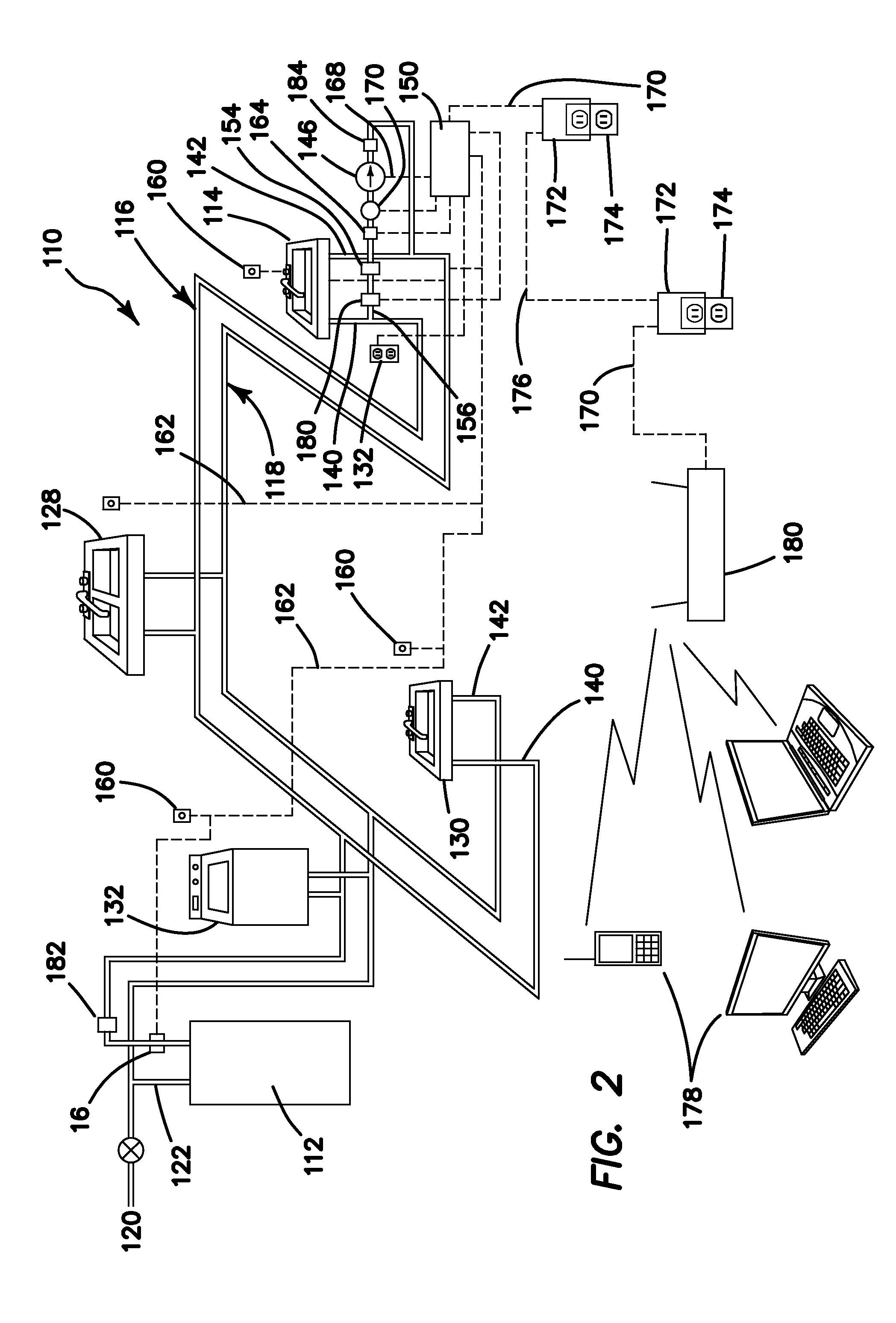Methods and apparatus for remotely monitoring and/or controlling a plumbing system
a technology for remotely monitoring and/or controlling a plumbing system, applied in the field of plumbing systems, can solve the problems of substantial water waste (water loss), commercial establishments also experience wasteful water and energy loss, and wasteful thermal energy waste, so as to reduce water waste and energy waste, and manage water usage.
- Summary
- Abstract
- Description
- Claims
- Application Information
AI Technical Summary
Benefits of technology
Problems solved by technology
Method used
Image
Examples
Embodiment Construction
[0038]With reference to FIG. 1, a hot water recirculation system 10 is shown in accordance with the present invention. The system 10 generally comprises various HWS components, which may include a hot water source, for example, a water heater 12, such as a gas, oil, solar, photovoltaic, or electric tanks or tankless heater, interconnected by means of pipes 14 with plumbing fixtures 18, 19, 20, 22, said pipes providing conduit means for enabling circulation of hot water from said hot water source 12 to each plumbing fixture 18, 19, 20 and return to the hot water source 12. The pipes 14 are thus in fluid communication with the hot water source 12 and the plumbing fixtures 18, 19, 20 in such a way as to establish a hot water loop 24.
[0039]More particularly, the pipes 14 may be comprised of a hot water supply line 26 which provides means for transferring hot water from the hot water source (such as a heater) 12 to each of the fixtures 18, 19, 20, 22 and a separate hot water return line ...
PUM
 Login to View More
Login to View More Abstract
Description
Claims
Application Information
 Login to View More
Login to View More - R&D
- Intellectual Property
- Life Sciences
- Materials
- Tech Scout
- Unparalleled Data Quality
- Higher Quality Content
- 60% Fewer Hallucinations
Browse by: Latest US Patents, China's latest patents, Technical Efficacy Thesaurus, Application Domain, Technology Topic, Popular Technical Reports.
© 2025 PatSnap. All rights reserved.Legal|Privacy policy|Modern Slavery Act Transparency Statement|Sitemap|About US| Contact US: help@patsnap.com



